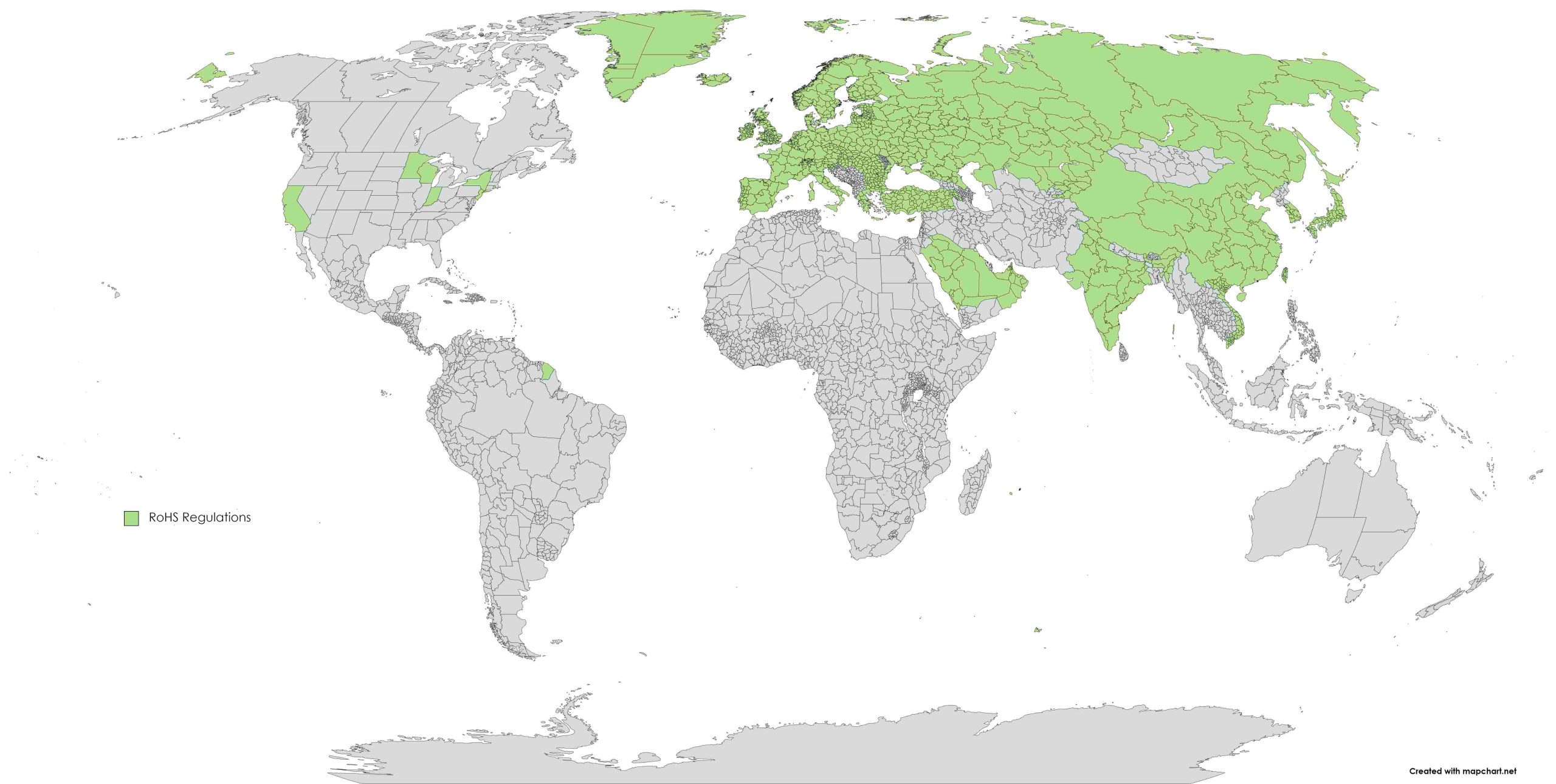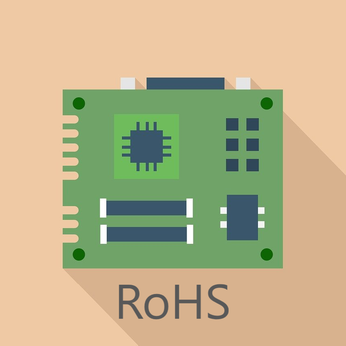Starting in Europe, RoHS regulations are now being developed worldwide. The scope, the listed hazardous substances, and their applicable exemptions differ from one market to another.
Enviropass is here to assist you with your testing towards product environmental compliance worldwide

This is an acronym that stands for Restriction Of Hazardous Substances. The long version is the Restriction of the use of certain hazardous substances.
Every RoHS regulation aims at restricting the use of hazardous substances contained in electrical and electronic equipment, to better protect the environment and human health. As a result, the waste of electrical and electronic equipment (WEEE) becomes easier to recycle and less harmful.

Electronics typically contain hazardous substances. They may be harmful to both human beings and the environment. For example, several chemicals used in most devices reveal carcinogenic, reprotoxic, and/or bioaccumulation. Importantly, at the end of the lifespan of a product, what are we going to do with toxic e-waste, also called WEEE? It may be very costly and difficult to depollute the electronics and recycle them. Therefore, it becomes critical to work from the design stage and avoid as many hazardous substances as possible.
Or simply put, what is the scope? These regulations target Electrical and Electronic Equipment (EEE). Depending on the countries, the covered product categories differ. Europe RoHS probably has the broadest scope, covering most household, professional, medical devices, tools, monitoring instruments, and even industrial products.
Generally speaking, aerospace, military, and automotive products are out-of-scope. Batteries obligations and package requirements are also excluded. However, specific regulations apply to automotive equipment (ELV), batteries, and packaging environmental compliance.
First of all, most RoHS regulations mirror the European ones all over the world. This is the case of the Eurasian Economic Union, the United Arab Emirates, Turkey, California, and other states and countries. Unlike the European Union, some countries like the United Arab Emirates request external audits.
Significant national deviations apply to other RoHS regulations, like in China and Taiwan, with different sets of labels and declarations.
Countries and states like Australia, Canada, Japan, or the USA (other than a few States) don’t have RoHS laws as such, or regulations specifically dedicated to substances restrictions in electrical and electronic equipment.
However, this doesn’t mean that no applicable regulations apply at all. Legal obligations on hazardous substances are usually implemented, restricting mercury, lead, cadmium, and others. The objective is to reduce their use and the risk of exposure when importing, producing, or placing on the market mixtures, products, and devices.
Obligations to declare such substances to national agencies, and to obtain certificates of authorization are usually mandatory above certain thresholds.
In short, no. The scopes, restrictions, and targetted substances differ. Even though both regulations may apply to the same product, in the same jurisdiction, there are various differences between RoHS and REACH. For instance, while RoHS is specific to electrical and electronic equipment, REACH applies to almost any article, mixture, and substance!
Typically, they are heavy metals (lead, mercury, cadmium, chromium hexavalent) and, depending on the jurisdictions, some additives in plastics, like PBBs, PBDEs, and phthalates (BBP, DBP, DEHP, and DIBP).
For technical reasons, certain materials or applications require restricted substances above the normal limits. For example, this is the case of lead in some copper alloys. As a result, enforcement authorities enable RoHS exemptions. They may be general to any electrical and electronic equipment or specific to certain product categories, like medical devices or monitoring and control instruments. Importantly, enforcement authorities periodically review RoHS exemptions and either replace, modify, or withdraw them, depending on technological progress. Enviropass maintains the updated EU RoHS exemptions.
Depending on the jurisdiction, amendments to the rules differ. For example, under EU RoHS, more than 50ish amendments, modifications, or updates since the 1st release. Some amendments are major, like the 2015/863 one with the addition of the four restricted phthalates.
In short, not only. It is true that environmental concerns in electronics have started with lead. However, despite lead and its compounds being the most prevalent restricted substances in electronics, other heavy metals, brominated substances, and phthalates also matter.
In essence, you will have to confirm that none of the targeted hazardous substances exceed their threshold of 0.1% (or 0.01% for cadmium) at the homogeneous material level of every component and material in your product. Two approaches are available:
The latter is highly recommended for complex products. When conducted, it should meet the IEC 63000 standard.
With the Enviropass lab in Montreal, we have developed a unique solution offering the best worlds of both documentary and analytical testing approaches.


Other States, like Brazil, have also drafted similar regulations. The Brazilian Ministry of the Environment has published RoHS Brazil.
Do you need a certificate of compliance for your new products?
Any other questions? Please contact Enviropass. You can also follow the Enviropass LinkedIn page to keep abreast of the latest news on product environmental requirements.
Book a free consultation by clicking the menu above on how to manage environmental compliance!